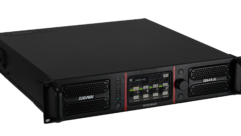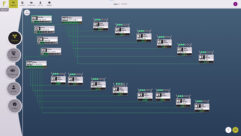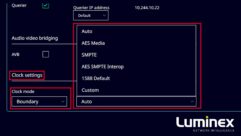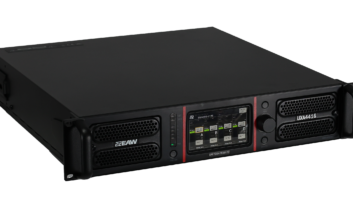
POV: Government Relations Update
Dec 1, 2007 12:00 PM,
By Richard E. Reed

Just more than two years ago, InfoComm’s Board of Governors decided to re-create its government relations program. The goal of this program is to track legislation that is important to the industry and report back to impacted members. InfoComm tracks the introduction and progression of legislation in all 50 state legislatures, then takes this information and assembles it into a database accessible to members on the association’s website. When necessary, InfoComm travels to state capitals to meet with bill sponsors and government agencies related to the industry.
This year, InfoComm has been exceptionally busy monitoring legislation with potential impact on the AV industry. The year began with a meeting of the leadership, executive directors, and government relations staff of Building Industry Consulting Service International (BICSI), CEDIA, NSCA, InfoComm, the National Burglar and Fire Alarm Association (NBFAA), and the Consumer Electronics Association (CEA) to discuss better cooperation and coordination on government affairs efforts. InfoComm participated in the National Conference of State Legislatures meeting in August, and it hosted an October meeting for the government affairs staff of BICSI, CEDIA, NSCA, NBFAA, and the Satellite Broadcast Industry Association. This spirit of cooperation has enhanced the organization’s effectiveness.
InfoComm monitors a large number of industry bills and court decisions each year. Here are some 2007 highlights.
IOWA — HB 795/897
These identical bills regarding statewide licensure of electricians and installers were signed into law in September. InfoComm — along with BICSI, CEDIA, NSCA, and others — successfully fought to secure an exemption for personnel working on limited-energy systems measuring less than 100V.
MASSACHUSETTS — SB 204/HB 279
InfoComm and BICSI testified in favor of this bill concerning the licensing of telecommunications professionals, and it has an excellent chance for passage in 2008.
MICHIGAN REGULATORY DECISION
Earlier this year, InfoComm members in Michigan had trouble pulling permits from local code offices. Some local officials asserted that only those holding licenses could do this. As a result, some members were forced to hire electricians, adding unnecessary expense to projects. The state also instituted an onerous permit fee structure for data/telecommunications outlets, which the Michigan Department of Labor and Economic Growth enforced starting at the beginning of this year.
Thanks to the joint efforts of InfoComm and BICSI, electrical permits were no longer required for members of the telecommunications industry as of Nov. 23, 2007. Other jurisdictions within the state such as counties, cities, and townships are also expected to cease requiring electrical permits for data/telecommunications work.
PENNSYLVANIA — HB 254
This bill calls for changes in the licensing of electricians. Overall, this is a good bill, but an amendment will be needed to exempt low-voltage, limited-energy installations. No action is scheduled for this year.
WISCONSIN — AB 294/SB 167
InfoComm — along with BICSI, CEDIA, and NSCA — requested an amendment to this statewide electrician/electrical contractor-licensing bill to increase the exemption for personnel working on equipment at the 50V-to-100V range. Public hearings were held in October, and the requested amendments have been entered into the record. At press time, the bills were proceeding with the amendments intact.
HIGH COURT LIFTS BAN ON MANUFACTURER’S SUGGESTED RETAIL PRICE (MSRP)
The U.S. Supreme Court, overturning a 96-year-old antitrust precedent, said manufacturers and distributors in some circumstances could agree with retailers on minimum prices for products. The justices ruled that the longstanding blanket ban on such accords was too restrictive and that a case-by-case approach would promote competition and lead to greater consumer choice.
The majority said that price-floor agreements should be evaluated under the “rule of reason,” a legal doctrine that assesses restraints on trade by looking at the impact on competition. In 1997, the court said the rule-of-reason test would apply when manufacturers set a maximum price that retailers might charge.
For questions or concerns about InfoComm’s Government Relations Program, please contact [email protected].
Richard E. Reedis InfoComm International’s government relations advisor.









